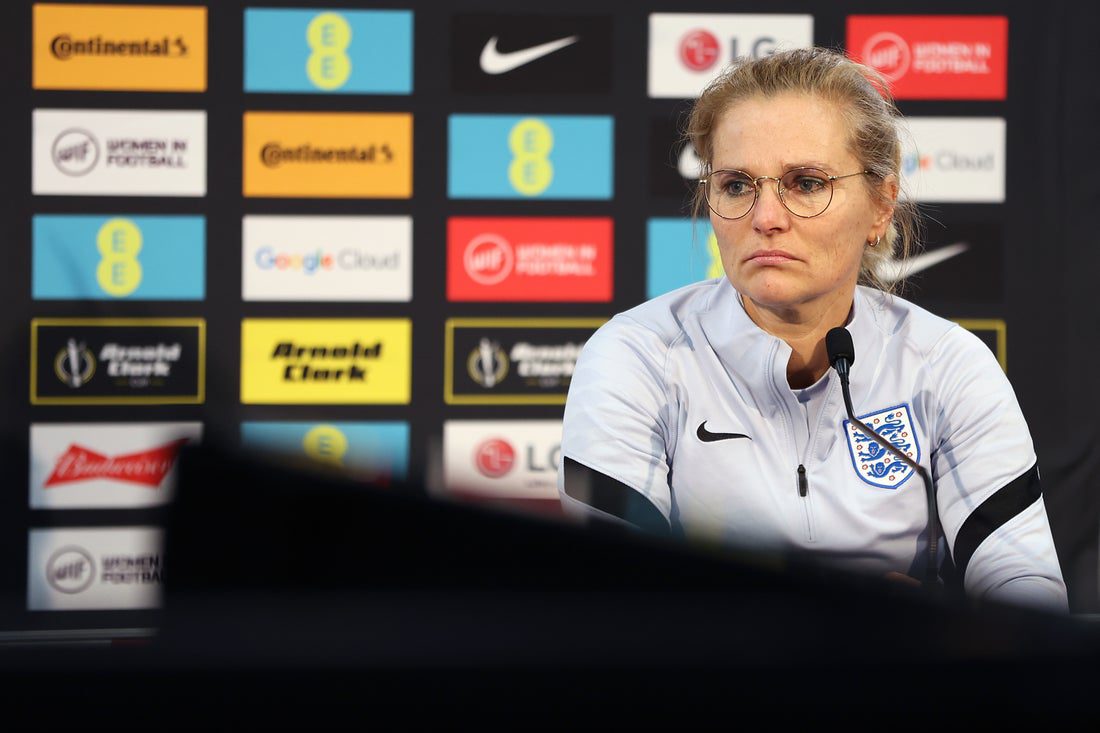The Women’s Super League: Set to fail our future Lionesses?

The paradox
With England retaining the Euro’s, Sarina Wiegman has called for more investment into girl’s football. The 3-time Euro’s winning coach says more funding is needed for future success.
But as Wiegman leads the Lionesses to trophies, the pool of English players at the top of the pyramid is diminishing.
When the Women’s Super League (WSL) started, over 70% of the players could represent England. This figure fell under 30% last season, highlighting the competition for contracts at the top of the pyramid.
So ahead of the WSL’s 15th season, this article sheds light on why the league may eventually fail our ‘future Lionesses’.
The FA WSL era
The Women’s Super League commenced in 2011 and was operated by the English Football Association (FA). Eight teams played in an April to August schedule.
In its first match-week, over 70% of the league’s players were eligible to represent the Lionesses. Managed by Laura Harvey, Arsenal became the inaugural champions.
The Gunners won back to back titles before Liverpool repeated the feat in 2013 and 2014.Then Chelsea and Manchester City won a title each and to date, these four teams are the league’s only champions.
The WSL expanded to 12 teams ahead of the 2019-20 season when Manchester United and Tottenham Hotspurs were granted licences.
In 2024, the FA handed the operation of the league to The Women’s Professional League’s Limited, who recently rebranded as WSL Football. Twenty-four teams now comprise the WSL and WSL2.
Chelsea have won the past 6 WSL titles, and last season 30% of their players were eligible to play for England. This figure emphasises the competition faced by the current and potential Lionesses.
The FA’s strategy
The Football Association’s (FA) current strategy for the women’s game has four strategic priorities. Mark Bullingham, Chief Executive Officer at the FA said,
“Until we have the same number of women and girls playing as men and boys, there is still more work to do across the game.”
In the past five years, grassroots campaigns like Let Girls Play have increased the number of girls playing football. The FA aims to build on this with their recently launched Made for this Game campaign.
At the higher levels, Emerging Talent Centres are in place for 8-16 year olds that show potential. In turn, clubs develop elite women and girls aged 14-20 in Professional Game Academies.
But whilst the number of girls teams is increasing at grassroots level, the FA’s home-grown player rule hinders ‘potential Lionesses’ on the elite pathway.
WSL clubs have to register 8 home-grown players in a squad of 25. A player is classed as home-grown if before they turn 21, they spend 3 years with an FA affiliated club. This rule is irrespective of their nationality.
Hence, the rule can be circumvented when clubs sign younger players from other nations. Consequently, ‘future Lionesses’ look set to receive less game time at the top of the pyramid, which may impact upon their performance levels.
WSL Football is a business!
In the 2023-24 season every WSL club generated over £1 million in revenue. Popularitygrew after the World Cup and total league revenue was up 34% to £65m.
But last season commenced with under 30% of the players eligible to play for the Lionesses. This figure looks set to fall, as the WSL is now attracting the world’s best talent.
In January, Chelsea broke the global transfer record when signing USA defender Naomi Girma. Last month, Arsenal signed Canadian forward Olivia Smith, lifting the record to £1million.
WSL Football needs players like Girma and Smith, as they will grow the league’s international fan base. A new £65m broadcasting deal begins this September, and this will also help clubs in the global transfer market.
But prioritising business growth could be detrimental to the next generation of Lionesses. The FA needs a stronger governance policy to protect the pool of English players.
Summary
Sarina Wiegman has signed a contract extension until the 2027 World Cup year. Her callfor more investment looks set to benefit girls in grassroots football.
However, her successor is likely to inherit a smaller pool of proven English WSL players. Time will tell if the impact of this, sees the Lionesses performance decline.
Chelsea’s dynasty is set to continue in the new season, as the WSL needs to address itscompetitive balance issue. North American squad salary caps could facilitate clubs to grow with parity.
This would require WSL Football and the FA to think outside of the box. But unfortunately, the business of football lacks the courage of its convictions.
By Richard Flash
Richard Flash is a senior lecturer in football and sport business management. He has 30 years of industry experience from playing professional sport, managing sport businesses and higher education leadership.
His research focuses on the racisms faced by the Premier League’s Black footballers, and he is a research partner and consultant to the anti-racism organisation Show Racism the Red Card.
You may also be interested in

Events
Guest Speakers
January 12, 2024 |
More than 100 sports industry guest speakers join UCFB for Premier Events initiative
Read Post

Scholarships
June 14, 2024 |
Scholar looks back on time with UCFB’s Barrow AFC Scholarship
Read Post

Guest Speakers
September 2, 2024 |
Quickfire Questions: Chris Sutton
Read Post










